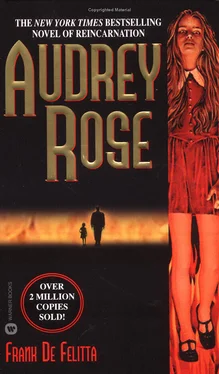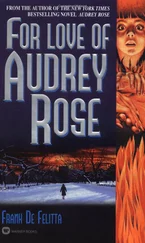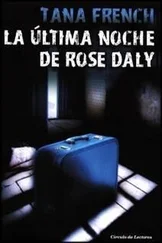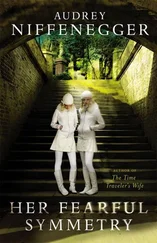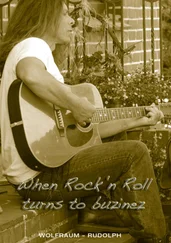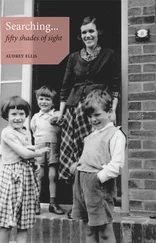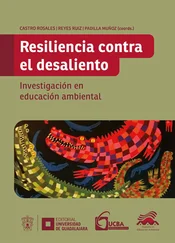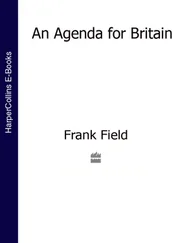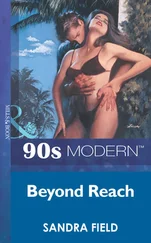moo-moo
I have become accustomed to. After seven years, a strange and frightening prospect. Yet I leave with a mind that hopes and a heart that leaps, for soon I shall be privileged to take the final step in my quest for truth, a step so Godlike as to be granted to only saints and deities. For given the knowledge and the faith and the belief I now possess, I must set my life’s course on a trajectory that will intercept the progress of my daughter’s soul. I must discover its abode and offer myself to its service, to pray and do good works in atonement for the lacks and errors of the past.
Janice shut the diary.
Outside, the January wind whistled shrilly and knifed in through the window cracks, bringing a chill to the room and causing her to shiver.
Words kept tumbling about in her head in random bursts. Hoover’s words, repeated from close and distant corridors of memory.
… to know, to love, to do—I must intercept … my daughter’s soul.…
He had come to their door to offer himself to the service of his daughter’s soul—to pray for it and do good works for it—and they had him thrown into jail.
“Your daughter’s health is an illusion. As long as her body shelters a soul that is unprepared to accept its Karmic responsibilities of earth life, there can be no health, not for the body of Ivy or the soul of Audrey Rose. Both are in peril!”
He had warned them, fully and correctly, and they had had him locked up in a cell.
“We must form a bond … a bond that is so tight and so filled with all the love you have, and all the love that I have, that we can carefully mend her, patch her—so that Audrey Rose’s soul may be put to rest once again.…”
He had offered them the only possible solution, and they had rejected it, had him put behind bars, and were now striving to make it permanent.
“We are all part of this child. We have all had to do with the making of her, and only we can help her.…”
He was right. They were all part of her. All had to do with her making, and now only they, together, could help her.
It was the only way.
If Ivy was to live.
It was just nearing daybreak when he arrived at Foley Square. He had asked the cabdriver to let him off at Fourteenth Street and had been walking for the past hour and a half. He had stopped once briefly in one of those small, bad-smelling all-night hole-in-the-wall eateries for a cup of coffee, which he drank without sugar or cream—not his usual habit—but a necessary act of self-mortification in this, his hour of grief.
Sipping its scalding bitterness, Brice Mack remembered how his mother had sat shivah after his father’s death. A neighbor had brought her an orange crate, rough and splintered, upon which she sat for the seven days and nights, her face unwashed, her hair unkempt, her clothes rent, drinking the bitterest of teas, rocking quietly backward and forward, moaning softly from the depths of her soul, putting her anguish on public display in memory of the husband she had lost, the man she had loved and whose son she had borne, lamenting in expiation for all she had not said and not done for him—the lapses and lacks and wifely duties she had failed to perform in life and would no longer have opportunity to correct in death.
The morning air was cold and damp, and spumes of steam filtered up through manhole covers in the empty streets surrounding Foley Square.
Yes, Brice Mack reflected solemnly, running his tongue over his teeth, cleansing them of the acrid taste of coffee, Momma sat shivah for Poppa, as Brice had sat shivah for Momma. But who was there to sit shivah for James Beardsley Hancock? Who was there to moan and rock from side to side and for seven days mount the rough and bruising crate of anguish for him?
There would be a Times obituary for him, one of considerable length and detail, no doubt, but possessing none of the passion and rending torment of a shivah to mark his passage from life. His would be a simple service—a brief, pallid, goyish exercise totally lacking in power and meaning. And here was a man whose splendid, exemplary, and beautiful life warranted—no, demanded!—the full outcry, the full spectacle of human grief and suffering to mourn its loss properly. There was no justice. Had he been born a Jew, he would have got the full treatment. Now, unfortunately, there was only Brice Mack, a miserable, unworthy substitute for the real thing, to cry for him.
He had been with James Beardsley Hancock at the end. Sitting at his bedside. At one ten there had been no fore-warning that at one eleven it would be the end. They had been conversing—that is, Hancock had been talking, softly and eloquently, on the very subject of death when it came stealing into the room on tiptoes to claim him.
Mack had spent most of the evening at the hospital, not exclusively to pay a sick call, but to confer with the doctors to ascertain whether Hancock would be in a condition improved enough to enable a deposition to be taken or, provided Mack could persuade the court to come up to the hospital with the jury, whether Hancock would be physically able to subject himself to what might be a grueling examination and cross-examination.
Despite the day’s stunning success with his witnesses, whose combined testimony forged an absolute link between Audrey Rose’s gruesome death and the substance of Ivy Templeton’s nightmares, Brice Mack knew that unless he could make a strong and convincing case for reincarnation, he was still a long way from home. With the Pradesh mess, Hancock’s heart attack, and Hoover’s rejection of Marion Worthman, his case for reincarnation at this point was practically nonexistent. Unless and until a full exposure of the subject could be placed before the jury by a person of consummate skill and unimpeachable scholarship and integrity, there would be little point in bringing Hoover or even the Templetons to the stand since their testimony would be heard in the absence of any real understanding of the basic issue in the case. It was essential their next witness be an expert on the level of Hancock.
At eight twenty that evening the doctors were sufficiently encouraged by Hancock’s improvement to hold out a vague hope that Hancock might be able to testify intra muros on the following day. Which was sufficiently encouraging to Brice Mack to permit him to leave the hospital and keep a nine o’clock dinner appointment with Professor Ahmanson and a man named Robert Vanable, a possible substitute expert whom Ahmanson had met in a Scientology meeting hall.
Himself a “clear,” a term applied to those who had achieved the apex of Scientological perfection and were moving up the OT Levels on which one attains abilities which are God-given and God-like, Robert Vanable instructed Mack through dessert on the true nature of life beyond death as revealed to L.R.H., the initials of L. Ron Hubbard, founder of the Church of Scientology, and as expressed by him in his famous lecture to the Eighteenth American Advanced Clinical Course back in 1957.
“L.R.H. was the first to cognate what really happens when a thetan splits the scene, and to postulate it,” enthused Vanable, sipping his Irish coffee. “A thetan exteriorizes fast from a body when it kicks the bucket. There’s plenty of confusion, too, and it has a terrible time until it can locate another body and get going again. Meanwhile, it’s totally cognizant. Knows who it was and who its friends were. All it’s suffered is the loss of mass. The mind remains. The Christian misconceptions of heaven, hell, purgatory—that’s all baloney. A thetan’s proving ground is still good ol’ terra firma.”
“Forgettingness doesn’t start till the pickup of the new body, at which point the memory valve shuts off, but not before some interesting prayers and dedications are said to insure a happy is-ness in the next life.…” And more.
Читать дальше
